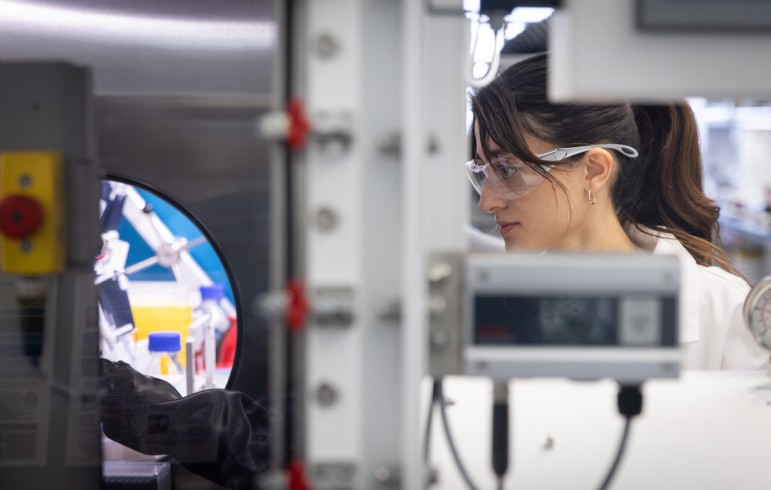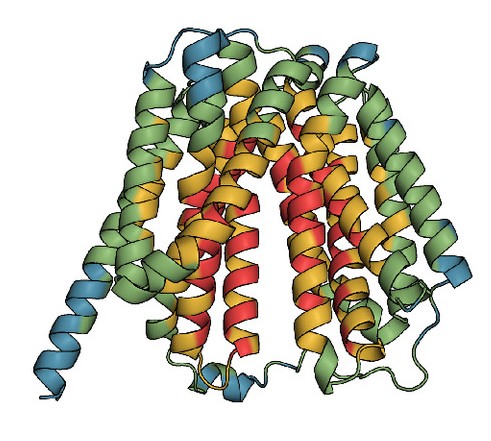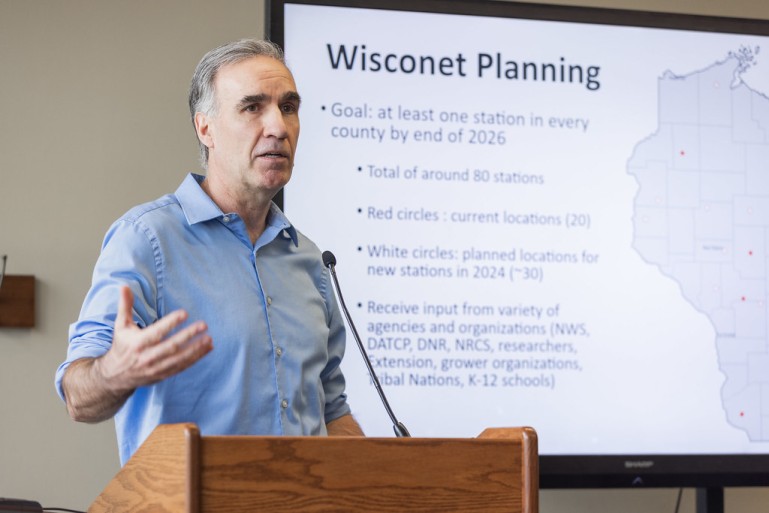A recent study by the Brookings Institute on clean energy technology patents and a Bloomberg analysis on U.S.
The Great Lakes Bioenergy Research Center (GLBRC), one of three bioenergy research centers established in 2007 by the Biological and Environmental Research program in the U.S. Department of Energy’s (DOE) Office of Science, recently published its 1,000th scientific paper.
UW–Madison's energy experts have a wealth of knowledge to share and a commitment to contributing to discussions on energy. Here, you’ll find a monthly round-up of their media coverage.
It’s springtime in Wisconsin again. Home gardeners and farmers are busy tending to their beds and fields, relishing the fresh sprouts of flowers, vegetables and crops. It begs the question: What happens to plants as they enter spring?
La Follette School faculty member Greg Nemet is one of only 35 recipients of the 2017 Andrew Carnegie fellowship.
Coming soon to campus: a dining checkout line that generates energy from customers’ footsteps and a cooler, more efficient rooftop greenhouse.
MADISON — In the Microbial Sciences Building at the University of Wisconsin–Madison, the incredibly efficient eating habits of a fungus-cultivating termite are surprising even to those well acquainted with the insect’s natural gift for turning wood to dust.



